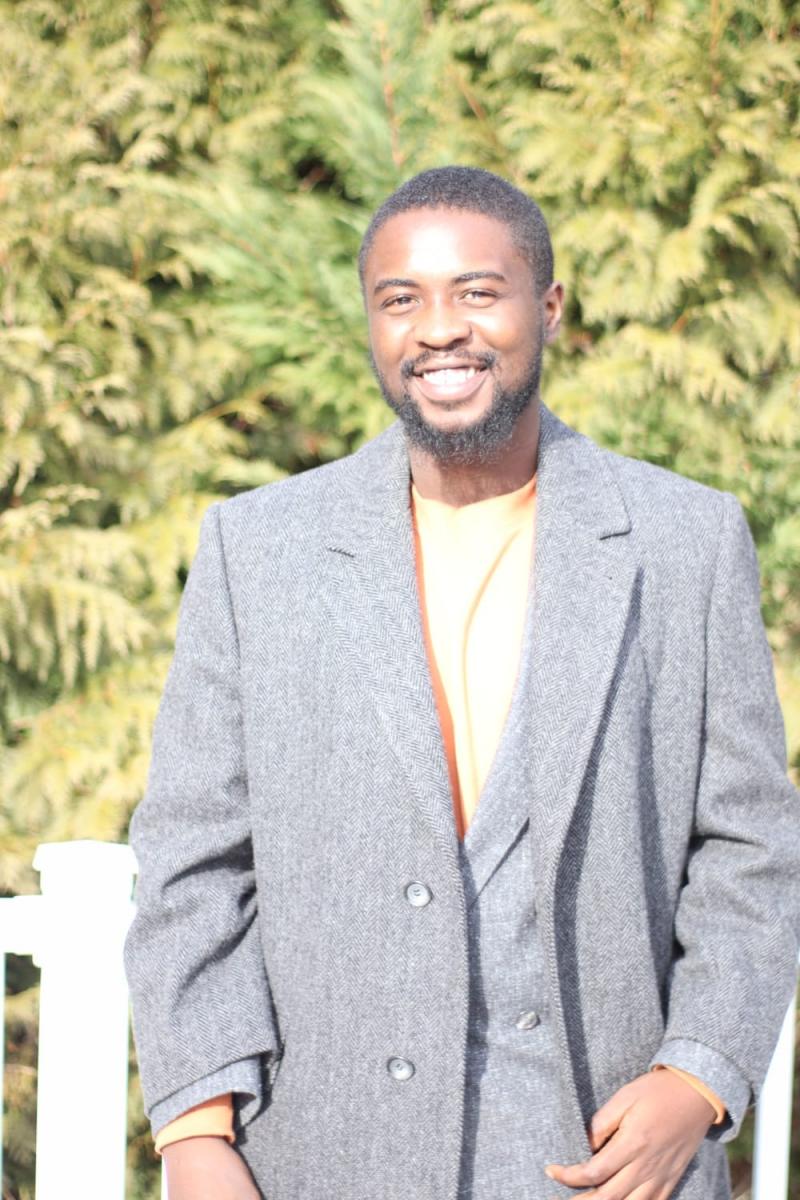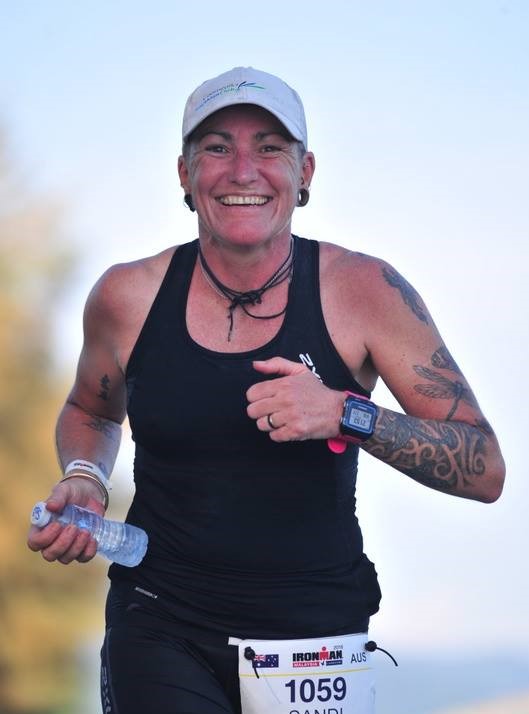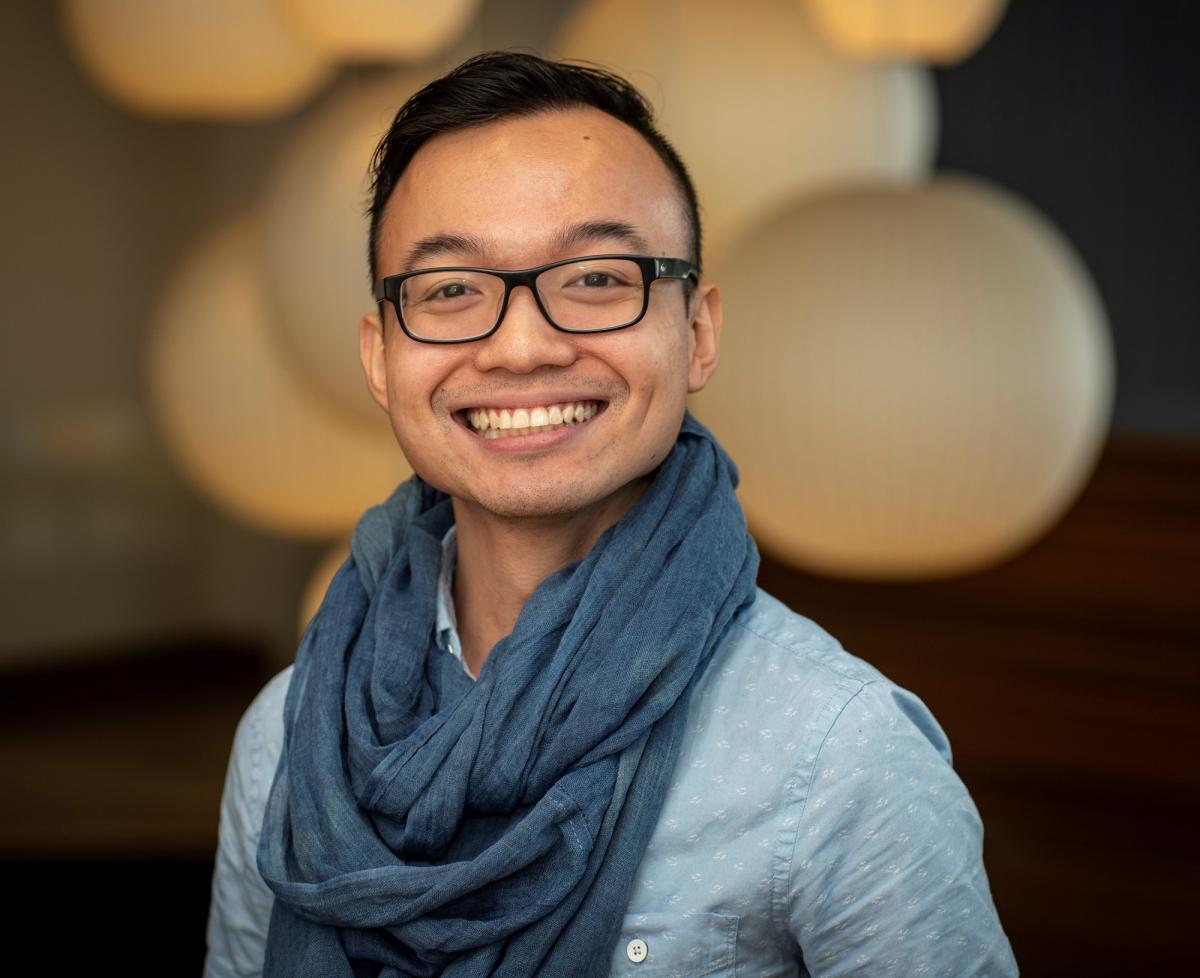2020 ACBS Diversity, Equity and Inclusion Scholars
2020 ACBS Diversity, Equity and Inclusion ScholarsLanham, Maryland (USA) Dissemination Activities 2020
Lanham, Maryland (USA) Dissemination Activities 2020Desmond Bull, Lanham, Maryland (USA)
Could you please tell us a little about you and your background?
I am Desmond Bull. I am originally from Sierra Leone, West Africa. I currently work as an ABA Therapist in Washington DC and Maryland. Being in the field for the last two years has been an eye-opener for understanding behavior and means to shape them. I like to spend my time researching ways to build my skills and learn new intervention techniques.
How did you become interested in CBS?
My interest in contextual behavior science stems from being in the field of behavior analysis and intervention.
Could you tell us about your research and application interests?
I am interested in researching more about ACT and how mindfulness can be therapeutic in certain situations. The concept has always intrigued me. I currently research and implement breathing and other mindfulness techniques in ABA, but ACT would be an interesting new path to research.
Could you tell us about your experience at the World Conference this year?
The conference in 2020 was like none other. It was initially scheduled to take place in New Orleans, but because of the covid 19 pandemic, it went virtual! Virtual, though somewhat limiting, provided opportunities for new learning and a different form of coming together. At the beginning, I had some issues with stable internet access. Once my internet struggles were over, I was able to participate in the conference fully. I listened to a variety of speakers as they went over several behavior shaping techniques. My personal favorite was the small breakout rooms. While it was an opportunity for more personal learning, it also provided us the chance to network and get to know other participants.
Was there anything that stood out to you about the CBS community?
The CBS community is particularly dedicated to impacting knowledge of contextual behavioral science in different forms. From the conference, the community projects a deep willingness to help interested individuals understand this concept. The community is full of professionals working in the field and they are willing to share their experience in a moment's notice. This is indeed the most noticeable part of the community - a community of professionals who understand the need to impact knowledge through their own experiences in the field.
What did you take back from your experience that has been helpful to you?
There have been a couple of meaningful takeaways I got from the conference. Unfortunately, from the onset of the Covid 19 pandemic, our work has been limited to online and limited in-person contact. The various sessions that taught us techniques to adjust certain behaviors and identifying triggers for them were particularly helpful. Being in the field and seeing some of the behaviors displayed on regular basis helped me put the speakers' words in better applicable contexts. Some of the strategies I learnt have been helpful in everything from de-escalating problematic behaviors to teaching alternative soothing behaviors to individuals. I look forward to having the opportunity to implement some of these techniques in a consistent manner when normalcy returns.
Are you wondering how you can help to disseminate CBS in the developing world through scholarship opportunities like this? Please consider donating to the Diversity, Equity and Inclusion Fund via Paypal by using the button below. Your donation will help us continue to bring increased diversity to our annual conferences by providing funds for individuals who come from diverse backgrounds and who would not be able to attend an ACBS conference without this added financial support.
Every dollar/euro/yen goes to helping those in need -- not a nickel goes to administration. Money collected for this fund is distributed by an ACBS Diversity, Equity and Inclusion committee. Scholarships are awarded based on need and merit.
Please note that this contribution does not qualify as a tax-deductible charitable contribution, according to USA tax law ... but it's a nice thing to do.
Malaysia Dissemination Activities 2020
Malaysia Dissemination Activities 2020Sandi James, Malaysia
Could you please tell us a little about you and your background?
My name is Sandi James. I am a registered Psychologist from Australia, currently living and working in Malaysia as a Senior Lecturer and Psycholgist in the Faculty of Medicine and Health Science, Univeristi Malaysia Sabah. I arrived in Sabah in 2014, and was recently able to return to accept a new contract for that position after living and working in the addiction field in Thailand for 2 years and spending most of 2020 stuck in the UK after the borders closed due to COVID-19 in March. I worked in public and private mental health services in Australia prior to coming to Sabah and am currently a PhD candidate with La Trobe Univeristy researching alcohol use in the Kadazan culture here in Sabah. I am also completing my certification for registration with the International Association for Eating Disorder Professionals (IAEDP).
How did you become interested in CBS?
I first came across ACT via Russ Harris and his book TheHappiness Trap. In my work I focus quite a lot of the words we use and the connections between words, feelings and actions. RFT fit nicely into this exploration and after looking into this further I was directed to the ACBS. Since that time I have joined, and been active in, a few SIGS and interest groups with a particular interest in LMIC and practice with diverse communities.
Could you tell us about your research and application interests?
Initially I planned to present research we have been doing looking at Ultra Brief Psychological Interventions, a protocol a colleaugue and I produced in 2017 to assist health service staff in Malaysia provide brief psychological interventions to patients they are seeing. Time restraints and workload has previously not enabled medical professionals and other health service staff to provide any interventions other than pharmacotherapy treatment.
Could you tell us about your experience at the World Conference this year?
I attended a number of sessions during the world conference and was most inspired by the range and diversity of the other particpants and presenters. My own personal circumstances throughout 2020 meant that I was unable to commit to the live sessions a lot of the time but when I did I found the speakers and presentations to be interesting and hopeful. I will attend again in 2021 in hopefully better circumstances for us all.
Was there anything that stood out to you about the CBS community?
The warmth, compassion and understanding of the CBS community is something that always stands out for me, and this was again evident throughout the conference.
What did you take back from your experience that has been helpful to you?
The thing that impacted me most was the level of passion and engagement within CBS community. This is the stand out feature for me and something that increased further during the conference.
Are you wondering how you can help to disseminate CBS in the developing world through scholarship opportunities like this? Please consider donating to the Diversity, Equity and Inclusion Fund via Paypal by using the button below. Your donation will help us continue to bring increased diversity to our annual conferences by providing funds for individuals who come from diverse backgrounds and who would not be able to attend an ACBS conference without this added financial support.
Every dollar/euro/yen goes to helping those in need -- not a nickel goes to administration. Money collected for this fund is distributed by an ACBS Diversity, Equity and Inclusion committee. Scholarships are awarded based on need and merit.
Please note that this contribution does not qualify as a tax-deductible charitable contribution, according to USA tax law ... but it's a nice thing to do.
Seattle, Washington (USA) Dissemination Activities 2020
Seattle, Washington (USA) Dissemination Activities 2020Nguyen Tran, Seattle, Washington (USA)
Could you please tell us a little about you and your background?
My name is Nguyen Tran. I am currently a Clinical Research Coordinator at Seattle Children’s Hospital. Professionally, I am helping a team of psychologists developing virtual behavioral parent training for children with ADHD. On the side, I am working on developing questionnaires to measure homophobia using ACT framework. I am a first-generation Vietnamese immigrant, person-of-color, and LGBTQ-identified ACT enthusiast. I am an aspired researcher and psychologist. My research interest is in equity and LGBTQ issues.
How did you become interested in CBS?
In 2015, I got my first job as a clinical case manager at a local non-profit, where I fell in love with clinical work and ACT. Since then, I’ve learned more about CBS. In 2017, I often attended the Washington Chapter meeting and it was then that I was introduced to Dr. Jonathan Kanter, who is mentoring me throughout my research journey/adventure. Dr. Kanter also gave me a book on FAP, which piqued my interest in CBS as a whole.
Could you tell us about your research and application interests?
As mentioned above, equity is an important value of mine. At the moment, Dr. Kanter and I are developing a new way to measure homophobia. In the future, I would like to contribute some more in using ACT in the LGBTQ+ community, as well as increasing access to care and decreasing stigma.
Could you tell us about your experience at the World Conference this year?
ACBS was the first World AND virtual conference that I attended. The experience was immensely positive. I was in awe listening to incredibly knowledgeable and passionate folks presenting their findings and experience. Two talks stood out to me the most, which was “Looking Back to Stay Ahead: Recasting ACT as Behavior Analysis” by Dr. Emily Sandoz and “Functional Analytic Psychotherapy (FAP) and the Soul of the Clinician: Cultivating the Sacred in Therapy and Beyond” by Dr. Mavis Tsai and Dr. Robert Kohlenberg. Dr. Sandoz’s talk stood out to me because she explained ACT in a way that was understandable to someone like me, who doesn’t have a clue about behavior analysis. Dr. Tsai and Kholenberg’s presentation solidifies and demonstrates what I know about FAP for the very first time.
I attended multiple SIG meetings, getting to know people from all around the world, and am now part of the leadership team of the Sexual Gender Minority SIG. These opportunities will never come across without the help of the DEI Scholarship.
Overall, the conference is an experiential exercise. I learned, laughed, and bonded with people who are staying up past midnight to attend a talk that interests them. I was assigned to a breakout room with folks from New Zealand, half a world away.
Was there anything that stood out to you about the CBS community?
It is not an understatement to say the CBS community is extraordinarily welcoming. I was also struck by how willing to help everyone was to me. As a proclaimed outsider, who is not a clinician or researcher, I entered the conference timid and unsure of what I have to say. But I was constantly supported and my voice was always uplifted when I speak.
What did you take back from your experience that has been helpful to you?
Everything I experienced had been helpful for me, both professionally and personally. I was able to connect with Dr. Skinta, who helped me with my LGBTQ project with Dr. Kanter. I was able to know and work with amazingly brilliant folks in the SGM SIG. I learned different research methods and ways to look at data differently, which now informs my research.
Do you have anything else that you would like to share with the community?
I am incredibly grateful that the community welcomes everyone with open arms, especially me. Without a doubt, I commit to pay this opportunity forward and I hope the organization will continue supporting new students and other non-traditional learners/CBS-enthusiasts in the future.
Are you wondering how you can help to disseminate CBS in the developing world through scholarship opportunities like this? Please consider donating to the Diversity, Equity and Inclusion Fund via Paypal by using the button below. Your donation will help us continue to bring increased diversity to our annual conferences by providing funds for individuals who come from diverse backgrounds and who would not be able to attend an ACBS conference without this added financial support.
Every dollar/euro/yen goes to helping those in need -- not a nickel goes to administration. Money collected for this fund is distributed by an ACBS Diversity, Equity and Inclusion committee. Scholarships are awarded based on need and merit.
Please note that this contribution does not qualify as a tax-deductible charitable contribution, according to USA tax law ... but it's a nice thing to do.